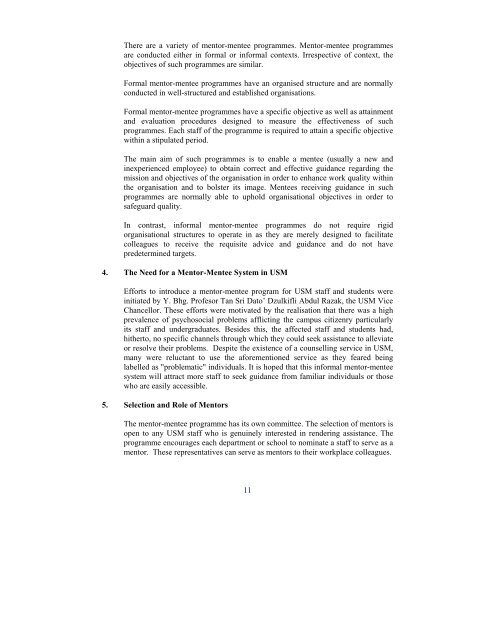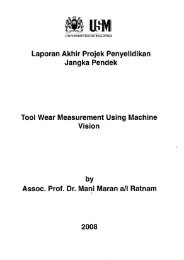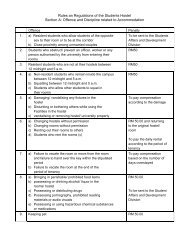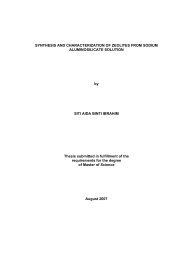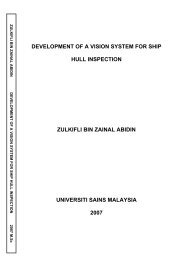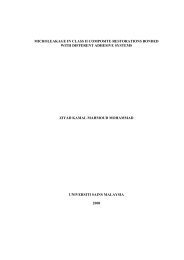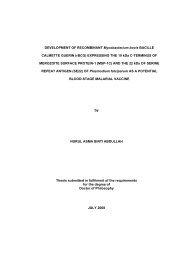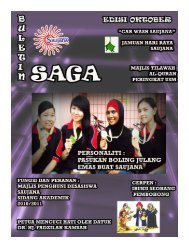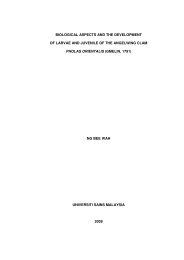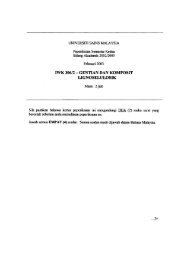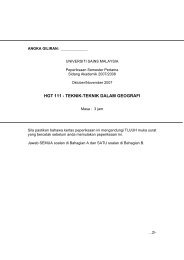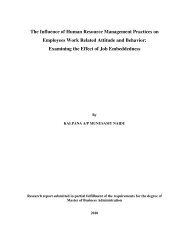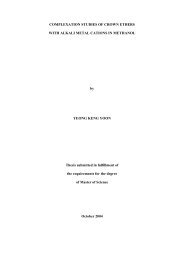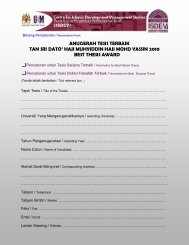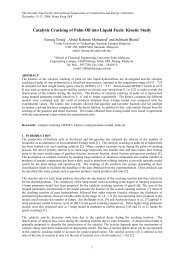IC/Passport Number - School of Humanities, USM
IC/Passport Number - School of Humanities, USM
IC/Passport Number - School of Humanities, USM
You also want an ePaper? Increase the reach of your titles
YUMPU automatically turns print PDFs into web optimized ePapers that Google loves.
There are a variety <strong>of</strong> mentor-mentee programmes. Mentor-mentee programmes<br />
are conducted either in formal or informal contexts. Irrespective <strong>of</strong> context, the<br />
objectives <strong>of</strong> such programmes are similar.<br />
Formal mentor-mentee programmes have an organised structure and are normally<br />
conducted in well-structured and established organisations.<br />
Formal mentor-mentee programmes have a specific objective as well as attainment<br />
and evaluation procedures designed to measure the effectiveness <strong>of</strong> such<br />
programmes. Each staff <strong>of</strong> the programme is required to attain a specific objective<br />
within a stipulated period.<br />
The main aim <strong>of</strong> such programmes is to enable a mentee (usually a new and<br />
inexperienced employee) to obtain correct and effective guidance regarding the<br />
mission and objectives <strong>of</strong> the organisation in order to enhance work quality within<br />
the organisation and to bolster its image. Mentees receiving guidance in such<br />
programmes are normally able to uphold organisational objectives in order to<br />
safeguard quality.<br />
In contrast, informal mentor-mentee programmes do not require rigid<br />
organisational structures to operate in as they are merely designed to facilitate<br />
colleagues to receive the requisite advice and guidance and do not have<br />
predetermined targets.<br />
4. The Need for a Mentor-Mentee System in <strong>USM</strong><br />
Efforts to introduce a mentor-mentee program for <strong>USM</strong> staff and students were<br />
initiated by Y. Bhg. Pr<strong>of</strong>esor Tan Sri Dato’ Dzulkifli Abdul Razak, the <strong>USM</strong> Vice<br />
Chancellor. These efforts were motivated by the realisation that there was a high<br />
prevalence <strong>of</strong> psychosocial problems afflicting the campus citizenry particularly<br />
its staff and undergraduates. Besides this, the affected staff and students had,<br />
hitherto, no specific channels through which they could seek assistance to alleviate<br />
or resolve their problems. Despite the existence <strong>of</strong> a counselling service in <strong>USM</strong>,<br />
many were reluctant to use the aforementioned service as they feared being<br />
labelled as "problematic" individuals. It is hoped that this informal mentor-mentee<br />
system will attract more staff to seek guidance from familiar individuals or those<br />
who are easily accessible.<br />
5. Selection and Role <strong>of</strong> Mentors<br />
The mentor-mentee programme has its own committee. The selection <strong>of</strong> mentors is<br />
open to any <strong>USM</strong> staff who is genuinely interested in rendering assistance. The<br />
programme encourages each department or school to nominate a staff to serve as a<br />
mentor. These representatives can serve as mentors to their workplace colleagues.<br />
11


